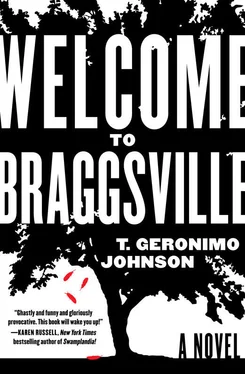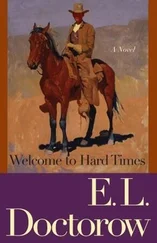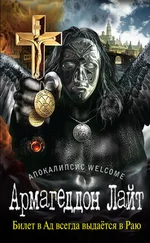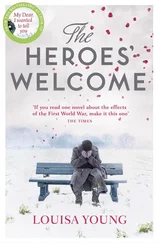One by one, Blue and Gray alike, they took to the folding chair and attested to the tragic perplexity of the heretofore unimaginable circumstances hereunder under consideration. Blue and Gray alike found their tessitura. Blue and Gray alike sang a chorus of sympathy for the Changs. Blue and Gray alike sang a chorus of sympathy for Charlie, who they reckoned must have been terrified by the very proposition, but who was not present, his mother having decided that, Surviving a shark attack didn’t make anyone a better, or luckier, swimmer. Blue and Gray alike sang a chorus of sympathy to Candice, a few rows ahead of Daron, Candice who didn’t testify, didn’t need to, because she had, Already been through enough; because she had, Cooperated enthusiastically — um, well— thoroughly with Sheriff and the coroner; and because she had, Already given a complete statement, which the judge reviewed along with Charlie’s statement. Besides, She has already been through enough. Besides, It’s a right hot kettle for any young lady to pour. Blue and Gray alike were equally appalled.
But only Blue, and Blue only, would and could speak to the Incident at length, would and could plumb the circumstance without being circumspect, because, as the magnets and the lines filling the board like flight plans made clear, Blue approaches that old poplar from the low Donner wood. Blue each year steps first foot in that shaded loam. Blue was all that saw all of what was to see of importance. And as far as Blue could calculate, the victim was dead when they arrived. In the confusion, The girl run off. The whip no one right recollected, fixed as they was [pause] on cutting down the poor boy. The Changs were stoic, as expected, but Candice scrutable, stricken by a condition, her shame-sounding half-swallowed ceaseless sobs steady as that old black fan up in the corner, its waving reprimand near enough to drown out her quiet crying.
Gray had their own proclamation. Blue, Daron noticed, were floormen, pitmen, linemen, all in the figure eight of his high school, middle school years, all outsiders, the ones whose parents moved to Braggsville when the mill expanded and the office needed new sleeves, the ones whose fathers came from ’cross the state and married in, the ones whose parents were too poor to work at the mill because their grandparents crossed the wrong street a long time ago. Some were third generation but wore Blue because it took four to call Braggsville home. The Gray, big G, were supervisors, firewatchers (as the engineers called themselves), law enforcement. Parents. Two linemen from his graduating class. And the pride and relief Daron hadn’t known he’d felt until then at each witness not being Jo-Jo diminished at the thought that maybe Jo-Jo just didn’t want to play Union but couldn’t yet be Confederate. Still he was surprised when Jo-Jo’s father sang in the stand with the others. According to a Facebook post a few months back, Jo-Jo had been promoted at the mill. He should have been with the Gray. After hearing Gray out, Daron was glad he wasn’t.
Yes, Gray had their own proclamation. Paramedics were Gray, as was the soldier who performed CPR, as was the soldier who propped Chang up on his hood to meet the ambulance instead of waiting for it to take the hill, as was the soldier who dialed emergency services, risking his good name because the cell phone prohibition was lifted only for soldiers whose wives were nearing delivery, and only for that reason alone could calls be made or received, but he knew, It was only right because the boy was a guest in our town. Yes, Gray had spoken without speaking. No one said reenactment. No one said war. No one said civil. No one said lynching.
The inquest, the hearing, wasn’t so much a listening as a telling, and Court didn’t need to say aloud what everyone knew by the time the last Confederate soldier clambered off the stand and slapped boot back into the gallery, The boy was dead when he got up in that harness. The girl panicked and run off, but not before trying to help. (As one witness said, nodding at her parents, Poor child was prob’ly scared for her life.) The young man from Chicago had the good sense not to go. Court didn’t need to say aloud, Though they are to be commended for valiant attempts, for noble conduct, for disciplined grace in the face of slander, no soldier on that battlefield, not a one, could have saved that poor victim’s life. (Except maybe the victim himself through a change of plans.) His death was accidental. And so this inquest rules it to be. But that does not leave aside the question of why he was there. No, Court didn’t need to say it aloud, not as Daron sat there sweating until his underarms smelled like old tacos, but Court said it anyway, leaving Town to think, If no one is guilty, what was the boy a victim of, D’aron? What have you made us kin to?
As Blue and Gray departed, Daron remained seated, averting his eyes, as he had at the end of that sixth-grade swim meet after which they’d started calling him Dim Ding-Dong. That afternoon, he was too fearful to venture far enough into the dank, cavernous locker room, the endless rows of gray louvered doors the interior of an alien spacecraft. After he changed into his street clothes and returned to the bleachers, his mother said, with a laugh, that he had mooned everybody. He didn’t think it funny, and wanted to wait for everyone to leave then, too. His mother refused his request. Back then, Mrs. Goman winked at him and Mr. Clark smiled and Mrs. Houston called him cutie pie, and he felt a secret thrill, saw himself anew in their eyes, his nudity a celebrity. Today, while waiting for the sound of shambling feet to die out, he cut peeks at Candice as she rustled her belongings together, rising with her father holding one elbow, her mother the other. (Crutches Louis would have called polio crutches. This thought was an indignity, he was certain. Why did he keep thinking of Louis only as a funny person, and why did that make it hurt all the more?) Her black dress covered her from fracture bootie to neck. The day after the Incident, he’d heard his mother tell Candice, Dear, in Iowa don’t you put the Jell-Os in the molds before you take them out for a stroll? Since then Candice wore a bra faithfully. For some reason, that turned him on more than when she let them march free. What would he have thought if he first met her today, without a dot, without a prepared speech on Native American rights, in mourning? Without catching her gaze, he couldn’t know.
And so he forced himself to stand, to look up, even though he was afraid to see what was reflected in the Town’s eyes, afraid to know what he would think of himself in the mirror of their faces. No one looked back. They all avoided him, except Candice, who gulped when he stood, who looked back in desperation as her father pulled her along like a stubborn child, his own head down, his other arm wrapped tight around his wife. His wife and Candice were the same height. At the exit he pulled them close, tight as booster rockets, and they turned sideways to fit through the door as if they were a single apparatus. Candice looked once more, and Daron thought he saw on her face the same fear and confusion and desire burning his. He had let her down.
When Daron’s parents rose to leave, the only people remaining in the room were the Changs and their attorney. On the wall near where they sat was posted one drawing someone had missed, perhaps because it was lower on the wall. It hung crooked, as if the child had taped it there himself. A self-portrait in red, yellow, and green, the little boy was skateboarding past a red house with smoke curling from the roof in broad yellow corkscrews mottled as crayon often is when applied over a rough surface, but as Daron noticed only after a second and third glance, there was no chimney on the home. Operation Confederation raised Cain instead of Abel, as Nana always warned him not to.
Читать дальше
Конец ознакомительного отрывка
Купить книгу












